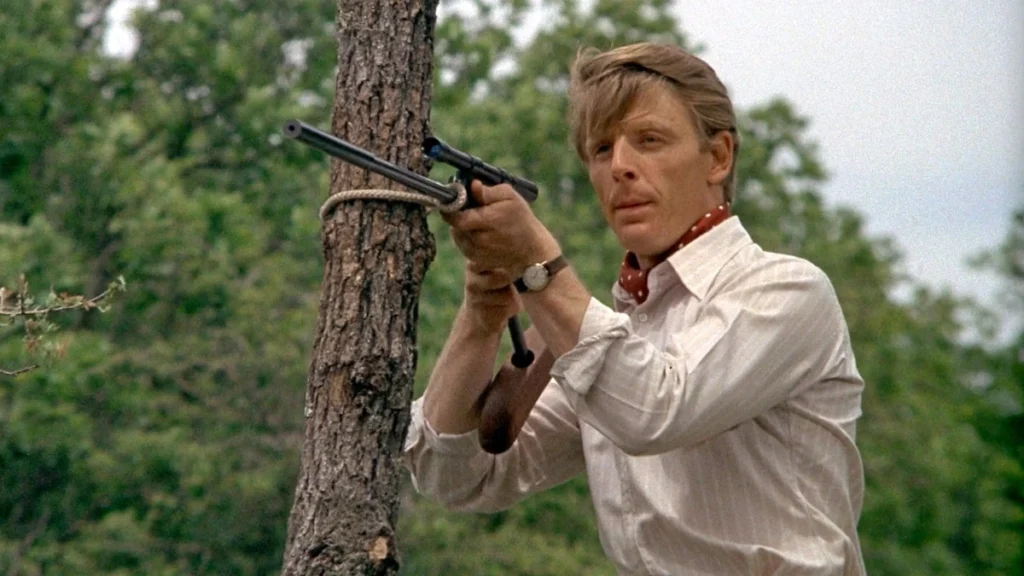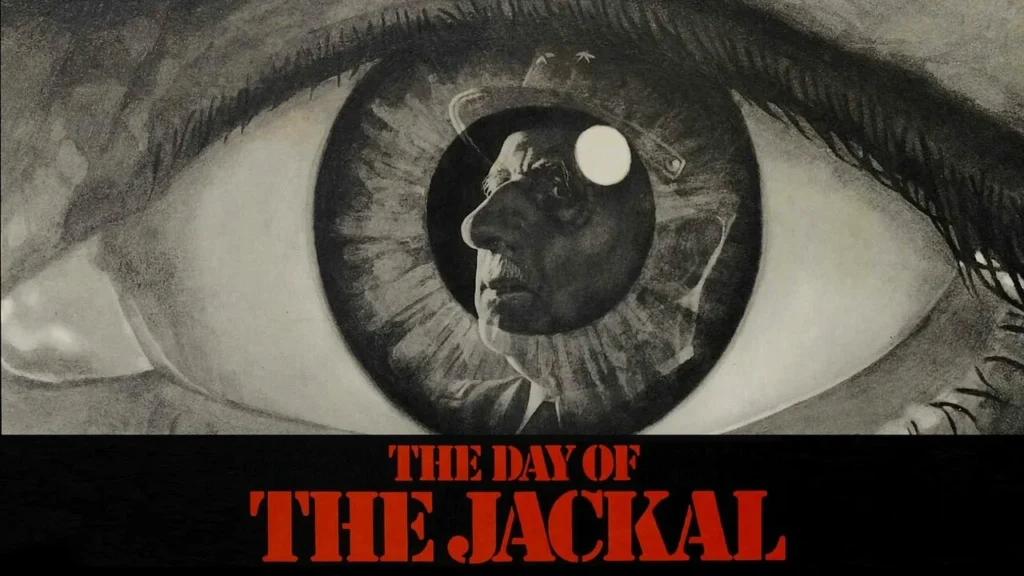From the very first page (or frame), The Day of the Jackal hooks you with a simple but a chilling premise: what if a hired assassin could pull off the perfect political murder? Whether you’re reading Fredrick’s Forsyth’s bestselling 1971 novel or watching the sleek 1973 film adaptation, you’re watching a master at work – calm, calculated and terrifyingly close to success. But as with all great thrillers, The Day Of The Jackal ending flips the script in a way that’s both unexpected and oh-so-satisfying.
⚠️Spoiler alert: If you’re here to decode the ending of The Day of the Jackal, whether you’re diving into Frederick Forsyth’s 1971 novel or the slick 1973 adaptation, buckle up. It’s a ride full of fake passports, disguises, and one seriously cool assassin. Let’s unpack it all – with a little flair and a lot of clarity.
Setting the Stage: Who is Jackal?

Before understanding The Day Of The Jackal ending, it’s important to understand who the Jackal is. Imagine a man so slick, so careful, and so meticulous that he becomes a ghost. That’s our guy – The Jackal, which is, of course, not his real name. He’s a mysterious professional assassin hired to do the unthinkable: kill the French President Charles de Gaulle.
The motive, you ask? Politics. The OAS, a French paramilitary group furious about Algerian independence, wants revenge. But instead of being all loud and messy, they go silent and strategic. Enter the Jackal.
From the get-go, The Day Of The Jackal is a masterclass in slow-burning tension. The assassin travels through Europe, secures fake documents, builds a custom rifle, and gets dangerously close to success – all while staying just out of reach.
The Final Countdown: Liberation Day
Here’s where things hit fever pitch. It’s August 25 – Liberation Day In France. There’s a huge public ceremony, the perfect opportunity for a clear sniper shot. The Jackal shows up disguised as an elderly war widow, complete with a cane and layers of makeup. It’s chilling how well prepared he is. From a rented apartment near the ceremony, he gets into position.
He locks in the scope. De Gaulle walks into view. Boom?
Not quite.
Also, read Iron Flame Ending Explained
Enter Lebel: The Quiet Detective Who Outsmarts a Ghost
Let’s talk about the Chief Inspector Claude Lebel, the unsung hero of The Day of the Jackal. He’s no James Bond. He’s not leaping off buildings or racing through Paris on a motorcycle. He’s methodical, persistent, and has been piecing together the Jackal’s movements like a human jigsaw master.
While others keep chasing dead ends, Lebel listens, cross-references, and keeps digging. And just in time, he figures out the Jackal’s likely location in disguise.
The Day of the Jackal Ending Explained (Film Version)
Now for the cinematic finish.
Just as Jackal is about to squeeze the trigger and change history, Lebel appears out of nowhere and shoots him dead. No dramatic speech. No drawn-out fight. Just one well-timed shot. The President is unharmed, the crows never even know how close the disaster came, and the Jackal dies anonymously.
It’s a quiet, brilliant ending. The Jackal’s almost supernatural cool is finally undone by one man’s sheer persistence.
The Day of the Jackal Ending Explained (Book Version)
Now, if you are a book purist, the ending of The Day of the Jackal has a bit more spice to it.
In the novel, things unfold with a slower, more suspenseful rhythm. Lebel and his team figure out where the Jackal might strike – and it’s close. As de Gaulle steps into the public eye, the tension is suffocating.
Lebel spots someone suspicious: a frail-looking old woman– or is it?
The Jackal bolts. He dives into the nearby apartment building, trying to reposition for a better shot. What follows is a nail-biting chase up stairs, through hallways, and finally into a windowed room. Just as the Jackal sets up for his second time, Lebel fires his submachine gun, killing the assassin mid-action.
It’s not flashy, but it’s powerful. Justice, done quietly.
Also, read Dark Matter Ending Explained
So, What Does It All Mean?

Let’s decode the symbolism and themes behind this brilliantly layered ending. Here’s The Day of the Jackal ending explained in plain terms:
- Lebel Wins: It’s not about brute force or wild tactics. Lebel triumphs through patience, logic, and attention to detail. He’s a reminder that intelligence and persistence can beat even the most cunning adversary.
- Jackal Fails: The assassin isn’t just any killer — he’s the best. Every move he makes is precise. But in the end, his greatest enemy is not failure — it’s someone who refuses to give up. His “perfect” plan? Foiled by human grit.
- History Stays the Same: There’s something poetic about the ending of The Day of the Jackal: the Jackal is inches from altering world events, yet no one outside the investigation even knows how close it was. De Gaulle is safe, and the world spins on. It’s a reminder that some of the most important moments in history are the ones that never happened — because someone stopped them.
- The Power of the Ordinary Hero: Lebel isn’t glamorous. But he wins. There’s a kind of justice in seeing the quiet guy — the one who stays up late reading reports—save the day. He’s the hero nobody saw coming.
Why the Ending of The Day of the Jackal Still Works?
Even decades after its release, the ending of The Day of the Jackal still holds up. Its ending is tight, grounded, and utterly satisfying. In a world of explosions and over-the-top villains, the story’s restraint makes it even more thrilling.
And let’s face it — there’s something deeply satisfying about watching a master plan fall apart because someone simply refused to be outsmarted.
If you’ve ever wondered how a thriller can end with both a bang and a whisper, well… now you know.
Also, read Remarkably Bright Creatures Ending Explained
Final Thoughts
The Day of the Jackal ending explained isn’t just about who gets shot or who walks away. It’s about the clash between cold professionalism and stubborn humanity. It’s about how sometimes, being the smartest guy in the room isn’t enough — not when there’s someone else who just won’t quit.
Whether you’re reading the book or watching the movie, that final moment — when the Jackal’s finger is just on the trigger — sticks with you. Not because of what happens, but because of what almost did.
So the next time someone tells you a quiet detective can’t be a hero, just point them to Claude Lebel.
Frequently Asked Questions (FAQs)
Is the Jackal based on a real person?
No, the Jackal is a fictional character. However, the OAS and its plots against de Gaulle were very real.
Why didn’t the Jackal just shoot earlier?
Because he was waiting for the perfect shot. That’s his style — precise and untraceable.
Does Lebel get recognition for stopping the Jackal?
Not really. That’s part of the beauty of it — he’s a hero in the shadows.
Is the ending the same in both the book and the film?
Mostly, yes. The core result is the same, though the book’s version is more drawn out and suspenseful, while the film opts for a quicker resolution.